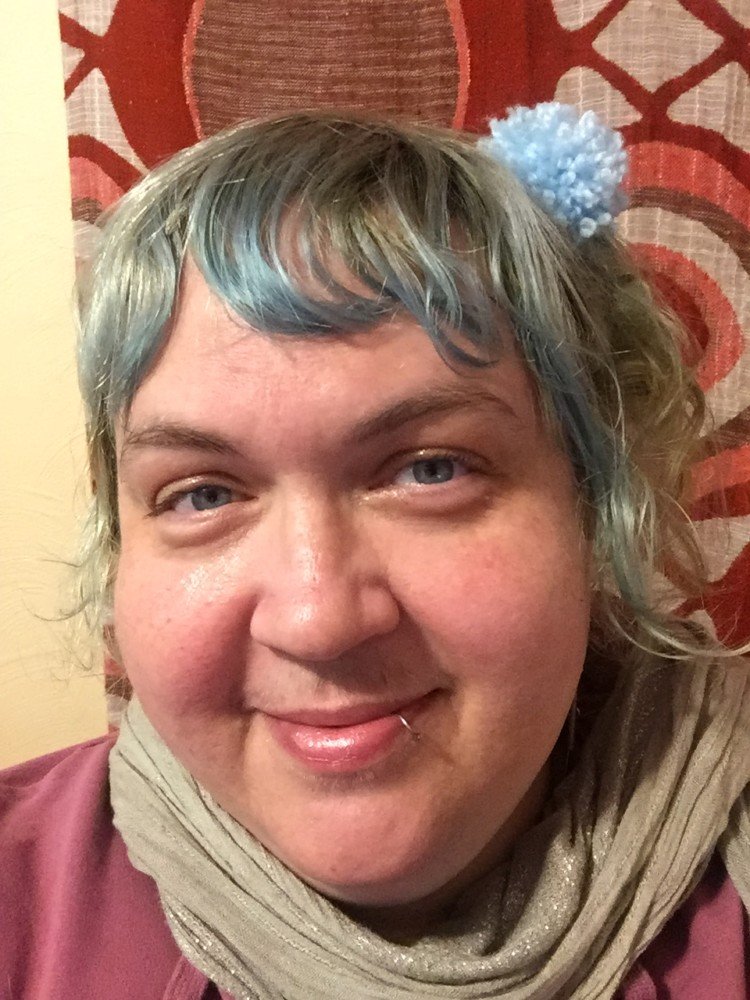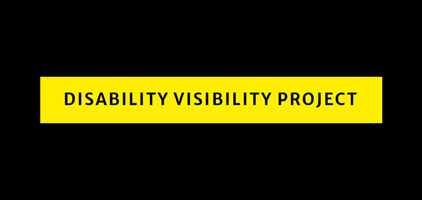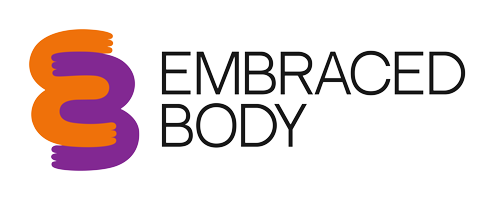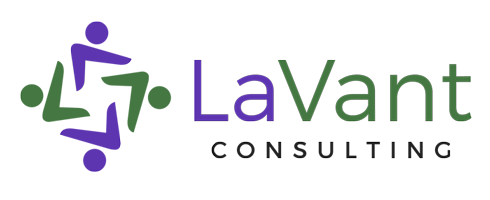Collective Loss Adaptation Project (CLAP)
The Collective Loss Adaptation Project (CLAP) honors the stigmatized and disenfranchised grief of disabled people, as well as sharing the wisdom of disability culture to help everyone adapt to a rapidly changing world.
CLAP makes use of art, culture, and media, as well as Indigenous and diaspora spiritual traditions to tend to the collective losses of this moment (including pandemic, climate crisis, and genocide).
Our work draws on the principles of Disability Justice including intersectionality, leadership of the most impacted, a commitment to cross-disability solidarity, wholeness, sustainability, and collective liberation. We are led by a multi-racial, multi-religious, cross-disability steering committee that reflects the vibrancy of both disability culture and the landscape of contemporary grief work.
Our vision is that disabled people will know that their grief is real and find community and witness in their losses; at the same time that the wisdom of disabled mourners is shared in broader struggles to bring hope, resilience, and adaptation.
Photo description: Three friends in brightly colored clothes sit on a couch together. They wear lovely bright red and green nail polish, and their genders are ambiguous in this picture.
"To have a movement that breathes, you must build a movement with the capacity to grieve."
-Malkia Devich Cyril
CLAP’s current programs:
A Disabled COVID-19 memorial installation to honor disabled losses in the pandemic due to the virus, medical neglect, and despair. This project is made possible by Alice Wong and the Disability Visibility Project
Disabled disenfranchised loss zoom support groups that offer facilitator-led care to disabled mourners in a non-judgmental, access-oriented setting, as well as ongoing peer support within a community of disabled mourners.
Grief as Resistance (upcoming!) we are currently creating a program to respond to the current rise of extremism in America, to both mourn these changes and harness disabled grief as a tool for resistance.
CLAP Staff
-

Elliot Kukla (Co-Director)
HE/THEY
Elliot Kukla (he/they), is a rabbi and writer with two decades of experience in grief care. The first openly transgender rabbi ordained by a denomination in Judaism (Hebrew Union College, Los Angeles, 2006), his work with CLAP brings together his professional expertise with his lived experience of being a trans, non-binary, disabled, Diasporist Jew. Elliot is a nationally recognized speaker on Disability Justice, spiritual care, and grief work. His book on disenfranchised grief is forthcoming from Schocken/Knopf Doubleday in 2027 and his writing appears in The New York Times, Time Magazine, The LA Times, Teen Vogue and many other publications.
Elliot lives with their partner, kid, queer chosen family, a Boston Terrier, a cat named Turkey, and over a hundred house plants.
-

India Harville (Co-Director)
SHE/HER
Founder of Embraced Body, India is an African American femme, queer, disabled inclusive dancer, somatic bodyworker, and disability justice activist. India’s work centers the body as an often underestimated pathway to decolonize ourselves so we can embody social justice more deeply. India has spoken about disability justice and somatics in a wide variety of settings including college campuses and social justice organizations. India holds a BA in psychology from New College of Florida and a MA in Integrative Health Studies from the California Institute of Integral Studies. To learn more please visit www.embracedbody.com.
-

Jung Han (Development Coordinator)
THEY/THEM
Jung Han (they/them) is an educator, facilitator, mutual aid organizer, resource mobilizer, community grief and health worker, poet, and writer. They have more than two decades of involvement with nonprofit, philanthropic, and grassroots community organizations and collectives, with a focus on racial, gender, disability, immigration, reproductive, and healing justice. Since 2022, they’ve been the Owner and Principal of Yeojeong Consulting & Coaching LLC, a social change consultancy dedicated to developing and strengthening racialized, trans, queer, disabled, migrant, youth, and emerging leaders, organizations, and social movements and previously worked in local, state, and national reproductive justice and social justice philanthropy. They also devote time to Rogers Park Free Store, Liberation Library, and the Unitarian Universalist Prison Ministry of Illinois. When Jung isn’t working or organizing, you can find them reading books and tarot, Korean drumming, spending time outside, and telling their cat Mochi how cute they are. Learn more about Jung and their work at www.itsjunghan.com.
-

Opulence Abundance (Program Coordinator)
THEY/SHE
Opulence Abundance is a speaker, conflict navigator, and healing professional. They received their Masters in Social Work in 2016 from the University of Southern California with a concentration in Health social work. They spent two years working with clients with severe and persistent psychosis. In 2018 they began working with a federally qualified health center in South Central LA where they managed external partnerships, 14 grants, over 10 million in grant funds, and 4 health programs. They helped create the first program in Los Angeles County at a FQHC for people exiting incarceration and went on to train other health clinics across California on how to create, maintain, and support patients and staff with histories of incarceration.
CLAP Steering Committee
-

Donaji Lona
HER/SHE
Donaji integrates her Biniza (Zapotec) indigenous ancestral legacy of interdependence, resilience, resistance, and community struggle to the organic process of transformation and integrates politicized somatics in her work with clients. She has been a long-term community organizer for immigrant rights and house workers’ rights, and public transportation (POWER). She brings her commitment to social justice to her politicized healing work. She’s been a teacher and practitioner, she has been in the field of somatics for over ten years. Her experience as the mother of two sons, one with Down syndrome that suffered from recurrence Leukemia 4 different times (now a beloved ancestor since 2017), has defined her vision of justice and care for life.
-

Jess Belasco
SHE/THEY
I run the Disability Justice Torah Circle & someday will graduate from JTS rabbinical school. When I’m not doing professional things, I like vegetarian cooking, cats, and nature adventures.
-

Julia Watts Belser
SHE/HER
Julia is a rabbi, scholar, and spiritual teacher who works at the intersections of disability studies, queer feminist Jewish ethics, and environmental justice. She is an associate professor of Jewish Studies at Georgetown University, Senior Research Fellow at the Berkley Center for Religion, Peace, and World Affairs, and core faculty in Georgetown’s Disability Studies Program. A longtime advocate for disability and gender justice, she currently directs an initiative on Disability and Climate Change. When she’s not teaching or writing, she’s a passionate wheelchair hiker and a lover of wild places.
-

Maria R. Palacios
SHE/HER
Maria is a disability activist, poet, artist, author and workshop facilitator whose message of collective power is a reflection of the survival and resilience of disabled people. In the artistic world, Maria is known as the Goddess on Wheels.
-

May Ye
SHE/HER
May is a Chinese-American Jew. She is entering her sixth and final year at the Reconstructionist Rabbinical College in Philadelphia, PA. She recently moved to New Haven, CT, where she will be completing her studies remotely as she works with Mending Minyan and as a chaplain intern at Yale New Haven Health. As a rabbinical student, May has worked as a rabbinic intern at Tzedek Chicago, for Aurora Levins Morales on new liturgy that centers the voices of indigenous Jews and Jews of Color, and as a climate justice fellow with POWER, an interfaith social justice organization in Philadelphia. She is the founder of the Person of Color Havurah at Kol Tzedek Synagogue and of Min Hameitzar: A National Network of Jews of Color Havurot. May organized with Jewish Voice for Peace (JVP), Philadelphia chapter, as a member of the steering committee and chair of the ritual committee and she is honored to sit on JVP’s national rabbinical council. She also volunteers as a movement chaplain.
-

Naomi Ortiz
THEY/SHE, ELLE/ELLA
Naomi is a Poet, Writer, Facilitator, and Visual Artist whose intersectional work focuses on self-care for activists, disability justice, climate action, and relationship with place. Ortiz is the author of Sustaining Spirit: Self-Care for Social Justice (Reclamation Press), a non-fiction book exploring self-care tools and strategies for diverse communities. Their new book, Rituals for Climate Change: A Crip Struggle for Ecojustice (forthcoming from Punctum books), expands on and complicates who is seen as an environmentalist and reimagines relationship with the land. Ortiz is a 2022 Disability Futures Fellow, 2021-2023 Border Narrative Grant Awardee for the multidisciplinary project, Complicating Conversations, and a 2019 Zoeglossia poetry fellow. They are a Disabled Mestize living in the Arizona U.S./Mexico borderlands. Website: www.NaomiOrtiz.com
-

Nomy Lamm
SHE/THEY
Nomy is a musician, illustrator, voice teacher, creative coach, a kohenet/Hebrew Priestess, and the Creative Director of Sins Invalid, a disability justice based performance project. Nomy sings cosmic power ballads for the rise of the matriarchy in a band called The Beauty, and creates ritual tools for embodied Jewish feminist practice, including the Olam haBa magical Hebrew planner and the Omer Oracle deck. They live in Olympia, WA on occupied Squaxin / Nisqually / Chehalis land with their partner Lisa and their animal companions Dandelion, Momma, Calendula and Chanukah.
Some of our Partners Include:





Want to learn more, become a partner, or get involved?

